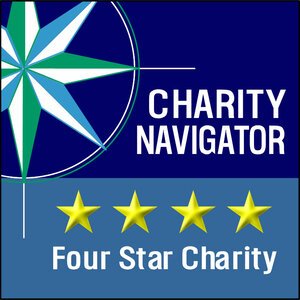Ask a Cowboy Poet
September 2021
This month’s question is one I think we’ve all wanted to ask the poets we’ve seen perform at one point or another over the years. It gives us all a unique opportunity to remember why we come to the Gather year after year to watch these artists and others perform their craft, what it means to them, and how it translates back to us in our lives. We hope you enjoy reading these submissions as much as we did this month. Our friends at Buckaroo Bling submitted their question through Instagram - don’t forget you can follow us on Facebook and Instagram to do the same! Email submissions can be sent to media@westernfolklife.org.
“
I'd like to ask your advisors how/why they became poets. Is it to make the hard ranching life easier by putting their feelings down on paper? Or is it to prove that country folk are as articulate and talented as anybody else? Or for some entirely different reason?"
- @buckaroobling
Dick Gibford:
Ranch life is physically demanding, but that’s about the only challenge about it that seems to increase as we age. The rest is just the way I like it. I love the solitude even more as I get older, I appreciate the little every day things that happen more than ever, love my horses like they are family, and in my case, I reckon they are. Having said all that, I suppose I feel the need to write my poems down to leave behind a record of a lone cowboy life on the range. Much like Charles Russell felt the need to document his life on the range, or Bruce Kiskaddon did with his wonderful poems. Not that I am comparing myself and my work to theirs, not at all. That is my answer to some of the why of it. As to the how, I got here at this juncture in time doing what I do, well that is part of the beautiful mystery that is left wide open for us to try and fill in the blank.
I was fortunate to have been born into the real world of the working cowboy life, because my father passed down his knowledge to me at an early age. But what really awakened the sleeping poet in me was when my mother would sit on the side of my bed of a late evening and read to me poetry by some of the old classic english poets. Paul Revere’s Ride, by Henry Wadsworth Longfellow was my favorite. I was four years old when mom started reading to me. I believe she thought the poetry would help me to go to sleep, but it had the opposite effect. So here we are emerssed (damn spelling) more than ever in writing about our lives through poetry, and determined to search ever deeper into the big mystery as we do it. Yet mostly, I suppose, to leave behind something that other youngsters can mull over, and maybe get inspired by, as we have, and still are.
Yvonne Hollenbeck:
I guess I was born a poet. I wrote little rhymes as long as I remember, and my poetry was, in a way, a type of journaling.
I was a farmer’s daughter and married a Cowboy/cattleman and became his ranch partner. I often write humorous poetry about events that happen on the ranch that were not very humorous when they happened, so in essence I guess it can make life easier by putting pen to paper.
Country people, for the most part, never try to impress anyone by their talent or intelligence, as their lifestyle is evidence of that. I think that writing poetry about that lifestyle is more of a vent, or as above stated, a form of journaling. It is for me.
Bill Lowman:
Dick Gibford, myself and a couple other poets were personally invited to answer these very same questions. We each submitted our columns that are now permanently enshrined in the official 2009, 25th Annual National Cowboy Poetry Gathering tabloid. Those of you that are gifted enough to master those electronical devices could probably "flush them out." I'm not, but I'll try to be brief.
I grew up without a t.v. or electricity. We entertained ourselves as a family, we didn't go to town and buy it. Bull and bronc riding, sports and cowboy songs ran deep on our blood. Cowboy poetry came to me as a way to record our culture. Too many of our predecessors didn't get it down and took it to their graves. We were basically an oral tradition. This leads me to a couple side notes. It's been my witness that we're all selling grass (not smoking) but we exist of several subcultures within our culture. As northern states, poets are mostly family owned and run our own outfits. We manage our own business of feed costs, marketing, land purchases, bankers, bull blood lines, etc., where the outback, I.O.N. buckaroo poets are basically day work hands, working for outside corporate owned outfits. This reflects directly in our writings. To us we are managing time. It's important and valuable to us in our business decisions, where in contrast to the buckaroo it's not so much. Our poems are much shorter and to the point, "Get in - make it and get out," where their poems ramble on and on much longer. Time is not the essence.
A second interesting subculture shows up in those that love the life but are void the opportunity to live it and are forced to have 9 to 5 town jobs. More times than not, they will write the "perfect cowboy poem" every time in what I perceive as a subconscious unaware effort "to belong" where we that live it every day will write about other events as a trip to town or a defiant pet cat as cowboy work becomes too routine.
Waddie Mitchell:
This is a tough one, I could write a book on this but here goes. I'll try to keep it under control.
I started writing and reciting poetry because I enjoyed hearing it recited from a young age. We lived remote, off grid and the way generations had long before us. Most of our entertainment came from the people sitting around the the supper table. Hired hands, neighbors, hunters, mail carriers, cattle buyers, etc. Their stories, mostly true, (I think) enhanced and embellished by the teller to their liking, were my tv. Every once in a while someone would recite a poem or two. This really excited me as a boy, so in school when the teacher would read poetry to us I took special interest. She read poems like Casey at the Bat, Cremation of Sam McGee, Rudyard Kipling and many more. They were ballad type story poems and she knew how to read the poetry with passion, thought, heart, comedy and excitement. Sadly teachers today aren't taught how to read poems anymore nor were their teachers. The tradition faded with the onslaught of electronic media. I feel that a shame.
I started seeking out and reading poetry. The bookmobile driver would bring me poets he thought I'd like. By the time I was a teen I could take a perfectly nice song and make it bawdy. My peers would laugh and that was cool to think I could get a response like that from words I'd put in order. It somehow legitimized my interest and allowed me to pursue what became my passion.
I believe 'poetry and song' is that old 'which came first, the chicken or the egg' conundrum. It is word music, it is entertainment. It can excite or calm emotions and it can be educational. It hurts my heart to see it fading into obscurity. We can only hope our efforts through the Gathering and the few other pockets around the country of like minded fans of metered and rhymed poetry will leave legacy and enough material behind to inspire future generation.
Poetry has been a wonderful second career for me. It allows me to cloak myself in my passion and appreciate and relive my first career.







